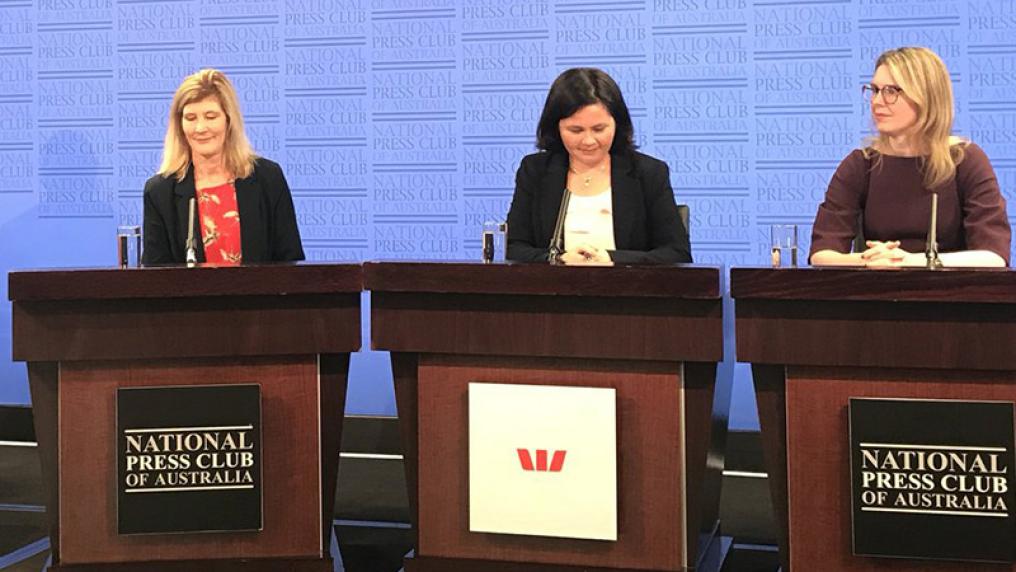VU expert: Enterprise Tax Plan won't improve national income

Speaking at the National Press Club in Canberra, Janine Dixon, from VU's Centre of Policy Studies, analysed the Government Enterprise Tax Plan 2.
The post-Budget forum was telecast on Sky News and the ABC.
Full plan for tax cuts still relevant
Dr Dixon spoke about the change in direction of the tax plan:
"The centrepiece of the coalition’s jobs and growth plan was a program of cuts to the rate of company tax from 30 per cent to 25 per cent, to be phased in for all companies over a 10-year period."
"Fast forward to now, and only a reduced version of the plan has passed the Senate – Enterprise Tax Plan 1. Companies with turnover of up to $50 million will be eligible for the cut to the company tax rate, but the profits of big businesses, those above the $50 million threshold for turnover, will continue to be taxed at 30 per cent.
"The full plan, now known as Enterprise Tax Plan 2, has failed to garner the support of the Australian public or the Senate, but it’s still alive and very relevant to a discussion about the budget in 2018."
Economic modelling shows lower Gross National Income
The Centre of Policy Studies is a Victoria University institute that undertakes economic-modelling research for governments and businesses.
Dr Dixon described the centre's modelling results regarding the proposed tax cuts: "Our economy-wide, market-based modelling of short-run and long-run effects finds that a cut to the company tax rate will stimulate investment and wages. The tax cut creates the incentive to expand investment by giving viability to investments that are profitable at a 25 per cent tax rate but not at a 30 per cent tax rate. This facilitates a small positive stimulus to economic growth."
She said that economic growth was to GDP, but that "a much better measure is Gross National Income, which subtracts the part of GDP that accrues to foreign owners of labour and capital."
Dr Dixon said the proposed tax cut would not improve Gross National Income, due to the effects of foreign-based investment: "the profits will accrue to non-resident investors and not add to national income ... and as a nation, we’ll collect less tax revenue from existing foreign-owned investment, and that is significant."
Wage growth has negative impacts on small businesses
The tax cuts are expected to result in wage growth, but Dr Dixon says there are negatives to this for some companies:
"The big businesses will be in a position to offer higher wages; and to compete, the other employers will need to offer higher wages too. The small businesses will face higher wage costs and no compensation on their tax bills. Faced with higher wage costs, some small businesses will cease to operate. Others may never come into being. This is not a policy that cares about small business."
Business Council of Australia takes different view
Dr Dixon evaluated different viewpoints on company tax cuts:
"Plenty of people at the Business Council of Australia and the government disagree with these conclusions....We all agree that GDP and pre-tax wages will be larger as a result of a company tax rate cut. Where we really differ is that they also believe that Gross National Income will be larger, although to a lesser extent than GDP, whereas we find that it will fall. This is fundamental, as it is the more suitable measure of economic welfare."
Among several reasons identified for the difference of opinion, Dr Dixon noted that: "The government modelling takes into account a gain attributed to reduced profit shifting – the idea that, with a lower tax rate, companies are less motivated to [use] ... offshore tax havens." However, Dr Dixon noted that a 25 per cent tax rate is still relatively high, saying that "companies will still try to find havens and shift profits where they can and this requires a broader solution than a simple reduction to the tax rate."
Women to benefit less than men
For a slightly different perspective, Dr Dixon addressed the impact of company tax cuts on women's employment.
She explained that company tax cuts will have less benefits for industries that have strongly female workforces, such as health care and education, as they rely on domestic expenditure: "The industries offering more opportunities – including manufacturing, mining, agriculture and transport – all currently have male-dominated employment."



